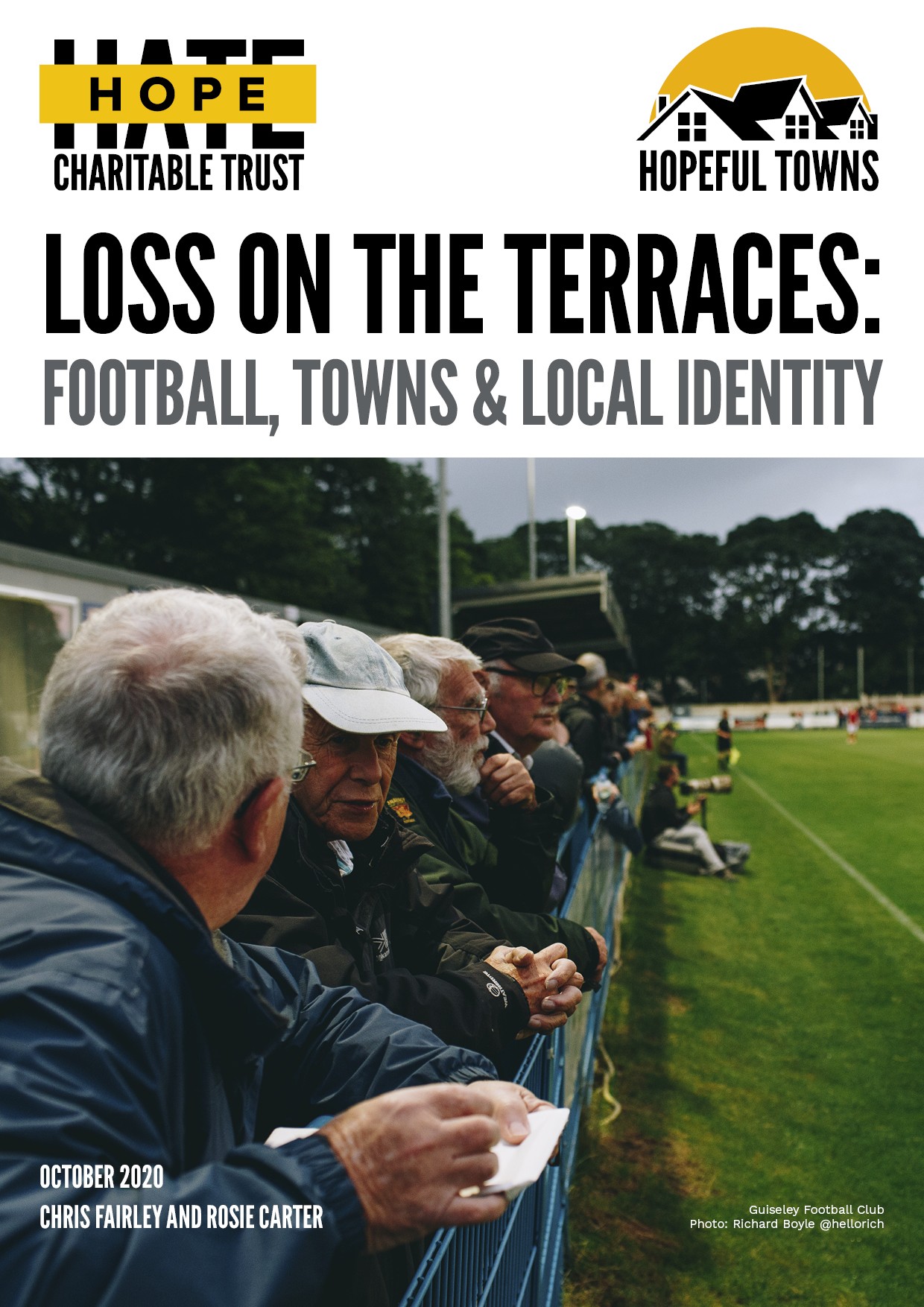HOPE not hate uses cookies to collect information and give you a more personalised experience on our site. You can find more information in our privacy policy. To agree to this, please click accept.
In Loss on the Terraces we explore the role of football clubs in holding together local identities and the human cost of the financial crisis facing the game. With 70% of English Football League clubs already reporting losses before coronavirus and football’s National League dependent on physical crowds, one of our last sources of collective local identity could be about to disappear.
This report studies football clubs as shared spaces, support networks, hubs of economic activity and formalisations of place identity. More importantly, it looks at their loss as part of wider visible decline and the loss of anchoring institutions in town communities across England.
This report has been published as part of HOPE not hate Charitable Trust’s Hopeful Towns project, which explores drivers of confidence, optimism and openness in English and Welsh towns. We want to address the root causes of hate, to stop divisive narratives from taking hold in the first place – which means recognising the value and potential of our sources of identity and anchor institutions.
As well as producing research to understand risk and resilience in our towns, we’re working with local partners in towns to develop local solutions and will be building a Towns Leadership Network to push for positive change across Britain.


Right-wing comic Kearse saves the worst material for his anonymous Telegram account HOPE not hate has identified an anonymised Telegram account belonging to the GB…